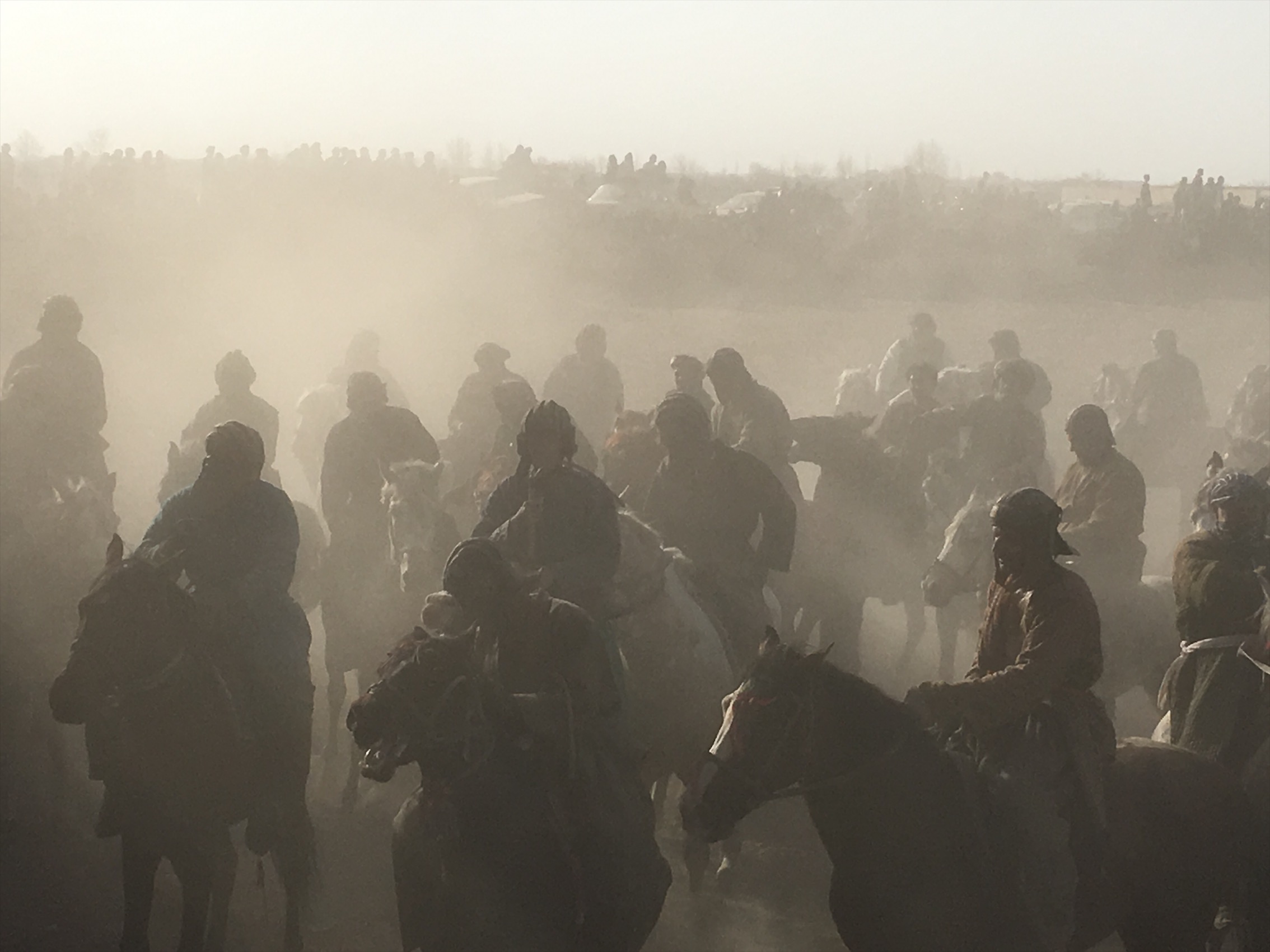
Buzkashi is an ancient Afghan game that involves horse-mounted players and a dead animal.
"I think the best way to describe Buzkashi is kind of war on a different plane," says Jason Motlagh, who was a foreign correspondent covering the war in Afghanistan and returned to the country to cover the sport.
He continues: "It's the national sport of Afghanistan. The word 'Buzkashi' means goat grabbing, but that doesn't do it justice. For one, they don't play with goats anymore, they play with calves. And the calves are beheaded, the hooves are taken off, they're disemboweled; so this is basically the game ball. And these can weigh upwards of 100 pounds in a big match."
Only the most masterful players ever get close to the carcass.
"You'll have a field full of horsemen, and the objective is to get the calf off the ground, so these guys are reaching down in the scrum of possibly 100 horsemen," Motlagh says. "You have to round the flag at the far end of the field, and through the scrum, and drop it in the scoring circle, and that's how you win a round. And if you win a round, there are prizes, sometimes hundreds, thousands of dollars, sometimes an SUV if a warlord is sponsoring a match.
Motlagh covered the sport for Outside Magazine. He says that out of all the chaos, the game actually provides a window into the politics and the culture of the country.
This segment is hosted by Todd Zwillich








